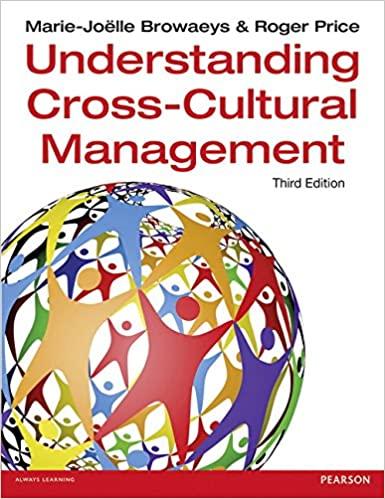A strange kind of revolution is taking place in the tiny, energy-rich Gulf emirate of Qatar. Until
Question:
A strange kind of revolution is taking place in the tiny, energy-rich Gulf emirate of Qatar.
Until relatively recently a fiercely conservative peninsular state living in the long shadow of Saudi Arabia, Qatar is asserting itself with global ambitions. Women are flocking to universities.
Skyscrapers are sprouting from the desert and foreigners and investors are pouring in in search of business. At a time when the Arab street is seen to be stirring in pursuit of change, the transformations under way in Qatar have been engineered not so much by its population as by Sheikh Hamad bin Khalifa al-Thani, the absolute ruler.
In Doha, the foot soldiers of change are a different breed from those crowding other Arab capitals.
They are more likely to be from public relations firms and management consultancies, hired from abroad to help promote and develop the emir’s ‘vision’. Slogans such as ‘modernisation without westernisation’, or ‘modern but Muslim’ emerge from PowerPoint presentations rather than street pamphlets or radical preachers. ‘His highness’, explains one enthusiastic subject from Qatar’s academic community, ‘is way ahead of his society. He is trying to position us to benefit from the changes in the world. What’s good for the world is also good for Qatar. We are not some kind of freak nation.’
By the standards of the conservative autocracies of the Gulf, Qatar is, however, becoming distinct in more ways than one even if it shares many of the same challenges. The emir says he wants to build a nation rich in human as well as natural resources, strategically positioned for its service industries, as well as its energy wealth. To achieve this, he is not just changing the skyline in Doha. He is also attempting to remould the mind-set of its inhabitants. In the first 24 years of independence from Britain, when other oil rich Gulf societies were assembling the trappings of modernity, Qatar remained a comparative backwater.
From the smallest fi nancial sector in the immediate vicinity, Qatar wants to develop the region’s preferred banking centre and has tailored regulations for the purpose. It wants more tourists, more skyscrapers, more international sporting and cultural events and more skills and know-how.
Behind these ambitions, say government officials, is a desire on the part of the emir to shake off the apathy that characterised times past.
He and his influential wife, Sheikha Moza, are going out of their way to empower women and instil entrepreneurialism in a population accustomed to being looked after in style by the state, they say. There is also, says Mohamed al-Thani, the economy and commerce minister, a will to invest at home money that might previously have gone abroad. Expense is of little concern. But the tiny size of the local population is, together with a desire not to be seen to compromise the deeply held Islamic beliefs of Qatar’s strict Wahabbi culture.
Although there are a growing number of exceptions, most Qatari women do not work and 60 per cent of the population is under the age of 21. ‘Qatar is looking to do things that require global experience right from the guy operating the crane, to the engineer, to the financier trying to pull together investors’, says an expatriate government adviser who himself fits the category. In the process, some Qataris complain that the roads are clogging up with traffic, rents have risen by 100 per cent in the past year and the composition and size of the population is changing by the day.
About 10,000 labourers have been brought in from south-east Asia for one project alone. The government wants a booming tourism industry but without the trashier trappings. It is liberalising the economy and wants a world class financial sector. But there is little scrutiny of business and data on public debt, foreign reserves or local population size are not disclosed. Most paradoxical of all, the government wants to develop its non-energy economy without jeopardising the culture and proportion of the local population.
Its approach in this respect is far more cautious than nearby Dubai’s, where you can now buy a beer with your fish and chips on the beach.
But the larger the non-Qatari population becomes, the harder it may be to stem the flow of unwanted aspects of foreign influence. With so many projects at stake, this appears to be a price the emir believes worth paying. As a non-elected leader with almost limitless funds at his disposal he has the luxury of thinking big and planning long term.
Questions
1. What are the contradictions and resulting cultural dilemmas which the inhabitants of Qatar had to face?
2. What elements in the mini-case support the statement that the modernisation of Qatar is the result of previous colonisation?
3. Are there any clues in the mini-case that could predict the success of Qatar as described in the introduction?
Step by Step Answer:

Understanding Cross Cultural Management
ISBN: 9781292015897
3rd Edition
Authors: Marie Joelle Browaeys, Roger Price





